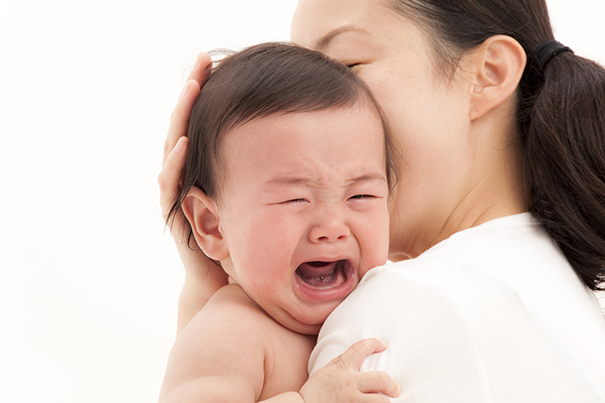What to Do When Your Baby’s Crying for No Reason?

Every parent knows the challenge of dealing with a crying baby. Sometimes, despite your best efforts, your baby just won’t stop crying. This situation can be incredibly stressful and frustrating. However, it’s important to remember that crying is a natural part of a baby’s communication. In this article, we will explore various reasons why babies cry and provide practical tips on how to soothe them when it seems like nothing is working.
Why Do Babies Cry for No Reason?
Babies cry for a multitude of reasons, and it’s their primary way of communicating discomfort, hunger, tiredness, or a need for attention. Understanding these reasons can help you address their needs more effectively. Here are some common causes:
Hunger or Thirst
Babies have small stomachs and need to feed frequently. Hunger is often the first thing to check when your baby starts crying. Offering a feeding can quickly determine if this is the cause.
Sleepiness
Just like adults, babies get tired and need naps. Overly tired babies can become fussy and may cry to signal they need rest.
Also read: How To Soothe Your Gassy Baby: Tips And Tricks For Relieving Baby Gas
Diaper Needs
A wet or soiled diaper can cause discomfort and lead to crying. Regularly checking and changing diapers can help keep your baby comfortable.
Need for Attention
Sometimes, babies simply want to be held or comforted. They may cry to signal that they need to feel secure and close to their caregivers.
Overstimulation
Babies can get overwhelmed by too much noise, light, or activity. If your baby is overstimulated, they may need some quiet time to calm down.
Discomfort or Pain
Discomfort from gas, teething, or a diaper rash can cause crying. Check for signs of discomfort and address them accordingly.
Colic
Colic affects about 1 in 10 infants and is characterized by prolonged periods of crying for no apparent reason. It usually occurs in the evening and can be very distressing for both the baby and the parents.
Illness
If your baby is unwell, they may cry more than usual. Look for signs of illness such as fever, ear pulling, or changes in feeding and sleeping patterns.
How to Soothe a Crying Baby
When your baby is crying and you’ve tried all the usual solutions, it can be incredibly frustrating. Here are some techniques to help soothe your baby:
Swaddling
Swaddling can provide a sense of security and warmth, mimicking the feeling of being in the womb. Ensure the swaddle is snug but not too tight.
Rocking or Movement
Gentle rocking or using a baby swing can help calm a fussy baby. The motion can be very soothing and help them settle down.
Pacifiers
Sucking is a natural reflex that can be very calming for babies. Offering a pacifier can provide comfort and help reduce crying.
White Noise
Soft background noise, such as a white noise machine or a fan, can help mask other sounds and create a calming environment for your baby.
Warm Bath
A warm bath can be very relaxing for a baby. The warm water and gentle movements can help soothe and calm them down.
Breastfeeding
Breastfeeding not only provides nutrition but also comfort. The closeness and skin-to-skin contact can help calm a crying baby.
Check for Pain or Discomfort
Sometimes, a baby may be crying due to pain or discomfort. Check for signs such as hair wrapped around a finger or toe, or signs of teething.
Create a Calm Environment
Dim the lights, reduce noise, and create a peaceful environment. Sometimes, overstimulation can cause a baby to cry, and a calm setting can help them relax.
When to Seek Help
If your baby’s crying is persistent and nothing seems to help, it might be time to seek professional advice. Here are some signs that you should contact a healthcare provider:
Persistent Crying
If your baby cries for more than three hours a day, three or more days a week, for three weeks or more, they may have colic or another issue that requires attention.
Changes in Crying Patterns
If your baby’s cry sounds different from usual or if they seem to be in pain, it’s important to consult a doctor.
Signs of Illness
If your baby has a fever, is refusing to eat, or shows other signs of illness, seek medical advice.
Parental Stress
Caring for a crying baby can be incredibly stressful. If you feel overwhelmed, anxious, or depressed, reach out to a healthcare provider for support.
Conclusion
Dealing with a crying baby can be one of the most challenging aspects of parenting. It’s important to remember that crying is a normal part of a baby’s development and communication. By understanding the possible reasons for your baby’s cries and trying different soothing techniques, you can help comfort your little one. If you’re ever in doubt or feel overwhelmed, don’t hesitate to seek support from healthcare professionals or loved ones.
FAQs
What should I do if my baby won’t stop crying?
Start by checking for common causes like hunger, tiredness, or a wet diaper. If none of these seem to be the issue, try soothing techniques such as swaddling, rocking, or using a pacifier. If the crying persists, consult a healthcare provider.
Is it normal for babies to cry for no reason?
Yes, it’s normal for babies to cry as a way of communicating their needs. Sometimes, they may cry even when all their needs are met. This can be due to colic, overstimulation, or other factors.
How can I calm my baby during the witching hour?
The witching hour is a period of increased fussiness that often occurs in the evening. To calm your baby, try creating a calm environment, swaddling, using white noise, or offering a pacifier.
When should I be concerned about my baby’s crying?
If your baby has a fever, is refusing to eat, shows signs of illness, or if the crying is persistent and you can’t identify the cause, it’s important to seek medical advice.
Can holding my baby too much spoil them?
No, you cannot spoil a baby by holding them too much. Babies need to feel secure and comforted, and holding them can help provide that sense of security.
What are the signs of colic in babies?
Colic is characterized by prolonged periods of crying for no apparent reason. It often occurs in the evening and can last for several hours. If your baby cries for more than three hours a day, three or more days a week, for three weeks or more, they may have colic.
Also read: 5 Effective Strategies For Getting Sleep With A Newborn






